NEWS
January 13, 2021
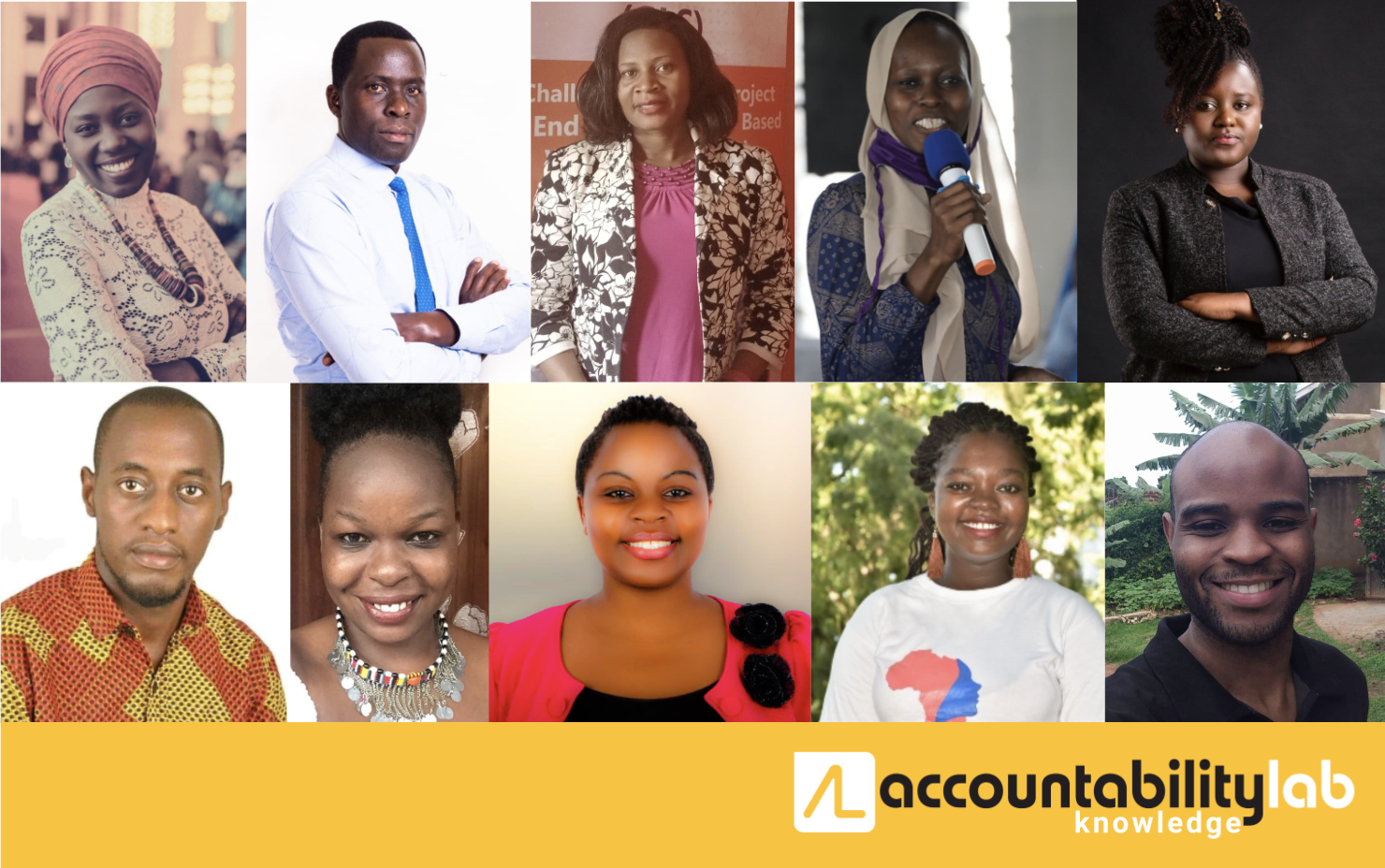
IN BRIEF
As 2020 took a different turn, so did our programs. Our Accountability Incubator program was moved online as we welcomed our very first virtual cohort of accountapreneurs from Uganda and Kenya. Read about the impact they are making below and join us for a live pitch session next Tuesday as the accountapreneurs introduce their work over the past year. By Tirelo Makwela The Accountability Incubator is our flagship program for young civil society leaders to build sustainable and effective tools for accountability, participation and open government. The Incubator provides a non-prescriptive, supportive environment for creative, enterprising individuals with innovative ideas [...]
SHARE
As 2020 took a different turn, so did our programs. Our Accountability Incubator program was moved online as we welcomed our very first virtual cohort of accountapreneurs from Uganda and Kenya. Read about the impact they are making below and join us for a live pitch session next Tuesday as the accountapreneurs introduce their work over the past year.
By Tirelo Makwela
The Accountability Incubator is our flagship program for young civil society leaders to build sustainable and effective tools for accountability, participation and open government. The Incubator provides a non-prescriptive, supportive environment for creative, enterprising individuals with innovative ideas to inspire accountability in their communities. The virtual incubator in Uganda and Kenya invited applications from young people with good ideas for accountability, participation and open government related to the Covid-19 response and recovery. The projects that have resulted so far reflect these themes powerfully, from working to support youth leaders to following the money and ensuring equitable access to government data and essential information.
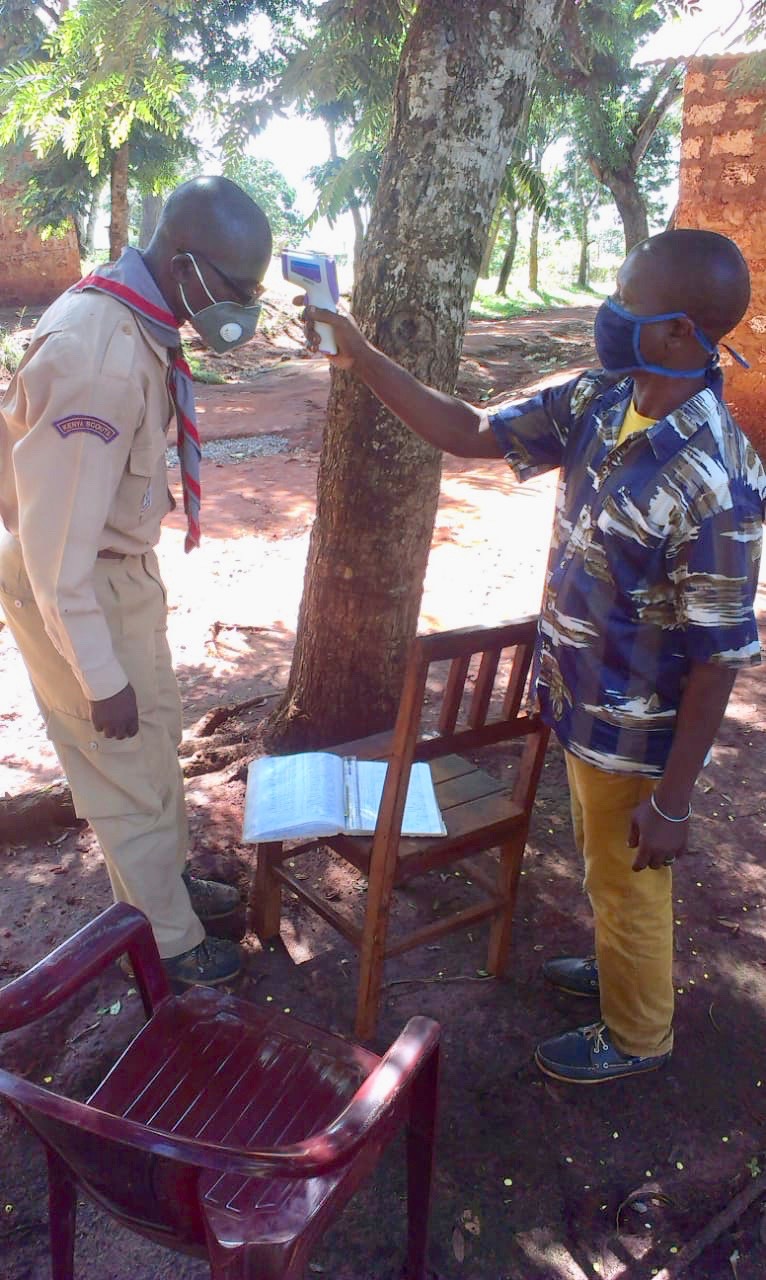 Two accountapreneurs are pushing hard to ensure that youth voices are heard through their advocacy projects. Damaris Aswa is a Project Officer at Kesho Kenya, an organisation whose mission is to advance access to education and employment for young, vulnerable people living in coastal areas through a long-term holistic approach. Her incubator project is Uadilifu Jangani, translated as Integrity in Pandemics, that aims to support grassroots communities to demand integrity through specially-formed Integrity Watch Groups and advocacy campaigns. Damaris has established some valuable relations with different stakeholders in her community including local chiefs, village elders, community health workers and public health officers. She says this will assist in generating goodwill and community buy-in and therefore also ownership of activities and services. “We have conducted monitoring visits to assess the preparedness of schools for reopening and shared feedback with community members through community dialogues. We’ve also started addressing some of the underlying causes of why youth are vulnerable to corruption. This challenge we received during a virtual youth engagement forum we organized. We’re addressing this challenge with the full support from the department of youth services through various economic empowerment programs available,” she explains.
Two accountapreneurs are pushing hard to ensure that youth voices are heard through their advocacy projects. Damaris Aswa is a Project Officer at Kesho Kenya, an organisation whose mission is to advance access to education and employment for young, vulnerable people living in coastal areas through a long-term holistic approach. Her incubator project is Uadilifu Jangani, translated as Integrity in Pandemics, that aims to support grassroots communities to demand integrity through specially-formed Integrity Watch Groups and advocacy campaigns. Damaris has established some valuable relations with different stakeholders in her community including local chiefs, village elders, community health workers and public health officers. She says this will assist in generating goodwill and community buy-in and therefore also ownership of activities and services. “We have conducted monitoring visits to assess the preparedness of schools for reopening and shared feedback with community members through community dialogues. We’ve also started addressing some of the underlying causes of why youth are vulnerable to corruption. This challenge we received during a virtual youth engagement forum we organized. We’re addressing this challenge with the full support from the department of youth services through various economic empowerment programs available,” she explains.
Another accountrapreneur working in this sector is Harriet Mukajambo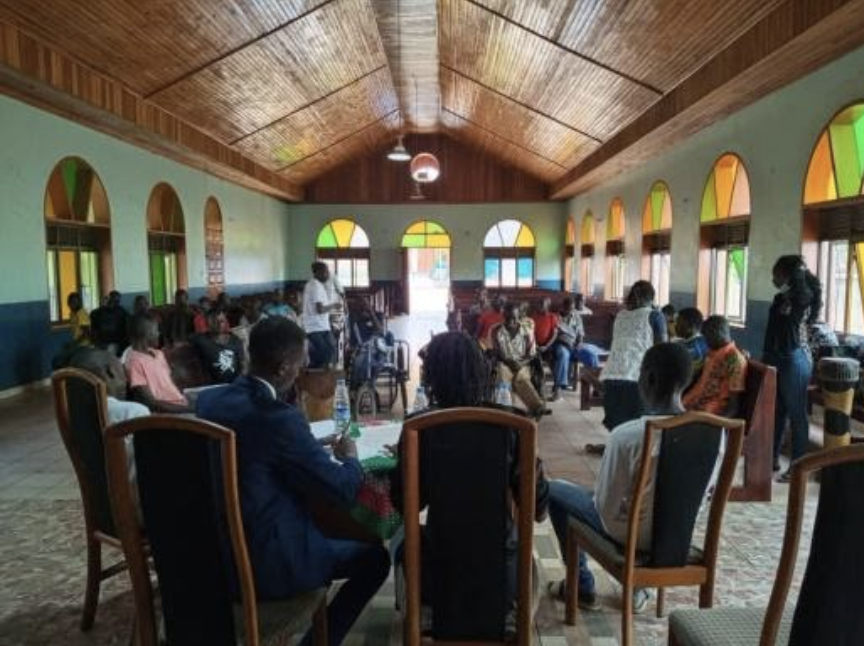 , an SDG activist and founder and Executive Director of Global Learning for Sustainability (GLS), a woman and youth-led organization that works on challenges related to SDGs 4, 5 and 13 through integrating inclusive strategies to promote diversity and inclusion. As part of the Virtual Incubator, Harriet works with vulnerable communities to assess the current impact of Covid-19 and uncover what services and relief support have so far been provided. Her project has since documented the experiences of the most marginalized groups of young people and their caretakers in a survey to establish the needs of the target community to survive and thrive amidst the challenges presented. She explains that current electoral activity in the country has provided an opportunity for marginalized groups to be at the forefront of challenging unresponsive leadership. “For instance, youths would prefer programmes that provide training in skills acquisition to address the current challenges paused by Covid-19. One youth suggested that the government should have given an opportunity for each parish or community to make products that would be sold to the state, rather than the government selecting service providers who are profit-driven,” Harriet says.
, an SDG activist and founder and Executive Director of Global Learning for Sustainability (GLS), a woman and youth-led organization that works on challenges related to SDGs 4, 5 and 13 through integrating inclusive strategies to promote diversity and inclusion. As part of the Virtual Incubator, Harriet works with vulnerable communities to assess the current impact of Covid-19 and uncover what services and relief support have so far been provided. Her project has since documented the experiences of the most marginalized groups of young people and their caretakers in a survey to establish the needs of the target community to survive and thrive amidst the challenges presented. She explains that current electoral activity in the country has provided an opportunity for marginalized groups to be at the forefront of challenging unresponsive leadership. “For instance, youths would prefer programmes that provide training in skills acquisition to address the current challenges paused by Covid-19. One youth suggested that the government should have given an opportunity for each parish or community to make products that would be sold to the state, rather than the government selecting service providers who are profit-driven,” Harriet says.
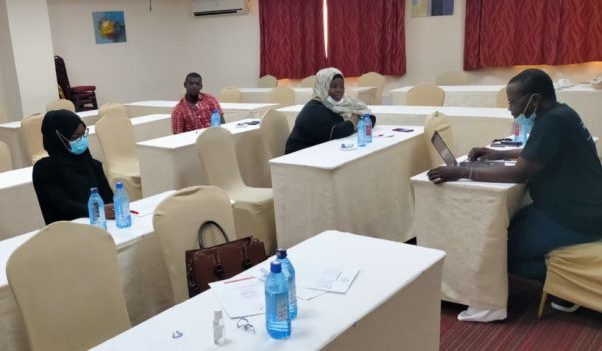 Another accountrapreneur working on SDGs, supporting women and youth initiatives is Shamim Juma Ali. Shamim is committed to youth engagement and raising awareness on the Sustainable Development Goals. She is the co-founder of the Center for Development and Peace (CDP), a youth and women-led organisation that is passionate about progressive development. Her project is centred on improving both access to information and consistent feedback by the government. Currently she is following the money which was channeled to the food distribution program by the local government in Mombasa. Shamim hosted a training session for accountability champions across Mombasa County about budget tracking, learning about budget documents such as program-based budgets and annual development plans. “My highlight has been the new knowledge and skills shared and learnt from a diverse group of accountapreneurs and facilitators. It has been a challenge to us to advocate for accountable leadership, institutions and society at all levels. Knowing that accountability starts with self helps.”
Another accountrapreneur working on SDGs, supporting women and youth initiatives is Shamim Juma Ali. Shamim is committed to youth engagement and raising awareness on the Sustainable Development Goals. She is the co-founder of the Center for Development and Peace (CDP), a youth and women-led organisation that is passionate about progressive development. Her project is centred on improving both access to information and consistent feedback by the government. Currently she is following the money which was channeled to the food distribution program by the local government in Mombasa. Shamim hosted a training session for accountability champions across Mombasa County about budget tracking, learning about budget documents such as program-based budgets and annual development plans. “My highlight has been the new knowledge and skills shared and learnt from a diverse group of accountapreneurs and facilitators. It has been a challenge to us to advocate for accountable leadership, institutions and society at all levels. Knowing that accountability starts with self helps.”
Fellow accountapreneur Anne Rose Osamba is also working on financial accountability. Founder of the Uzalendo Afrika Initiative, Anne is passionate about youth inclusion in governance, political and accountability processes, peace building and conflict management. Her project involves a social audit of the supplementary budget from her county of Mombasa, Kenya, that was set aside for COVID-19 support measures. So far she has managed to develop strong relationships with national government departments and other stakeholders have shown a willingness to participate in a critical baseline survey and provide support by identifying key gaps in terms of access to information and public partition.
For other accountapreneurs, developing platforms to improve access to accurate information about government and national policies is what they deem key for accountability to be realised in the Covid-19 response and recovery. Derrick Mpagi, a lawyer and also founder and Executive Director at a nonprofit called the MIGHT Foundation, aims to provide Ugandans with national online platforms and district and grassroots offline platforms where they can be informed by government officials, civil society, innovators and the private sector about Covid-19 resource accountability. During the past few months, his project has developed immensely and now includes grassroots community debates for candidates standing for political positions.
Brian Keter is a young CSO leader who is passionate about community mobilization. His incubator project is intended to mobilize citizens through the creation of Community Working Groups to encourage more responsive governance. In particular, the working groups will monitor and promote essential health and social rights and work towards the establishment of a more responsive budget process.
Sheilla Ayebare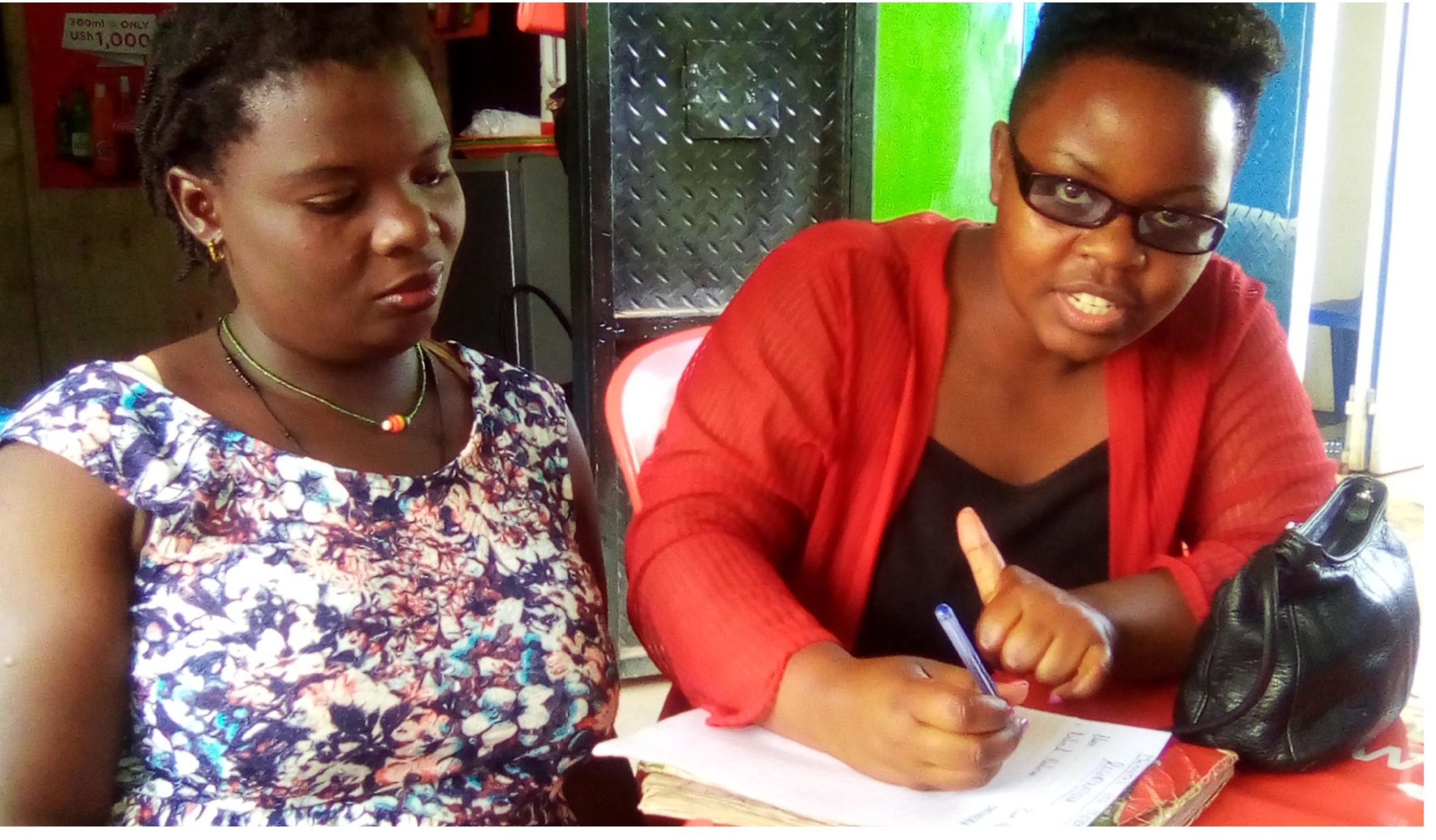 , a committed women’s rights activist from Kampala and co-founder of the nonprofit Mwanamke Law Firm that advocates for women’s rights is also working on data transparency and inclusion. Her project, the Mwanamke SMS System, provides people with information about policies, rights and stakeholder services for women. Sheilla has worked closely with a mobile developer to build out the platform over the past few months and so far has more than 100 registered users.
, a committed women’s rights activist from Kampala and co-founder of the nonprofit Mwanamke Law Firm that advocates for women’s rights is also working on data transparency and inclusion. Her project, the Mwanamke SMS System, provides people with information about policies, rights and stakeholder services for women. Sheilla has worked closely with a mobile developer to build out the platform over the past few months and so far has more than 100 registered users.
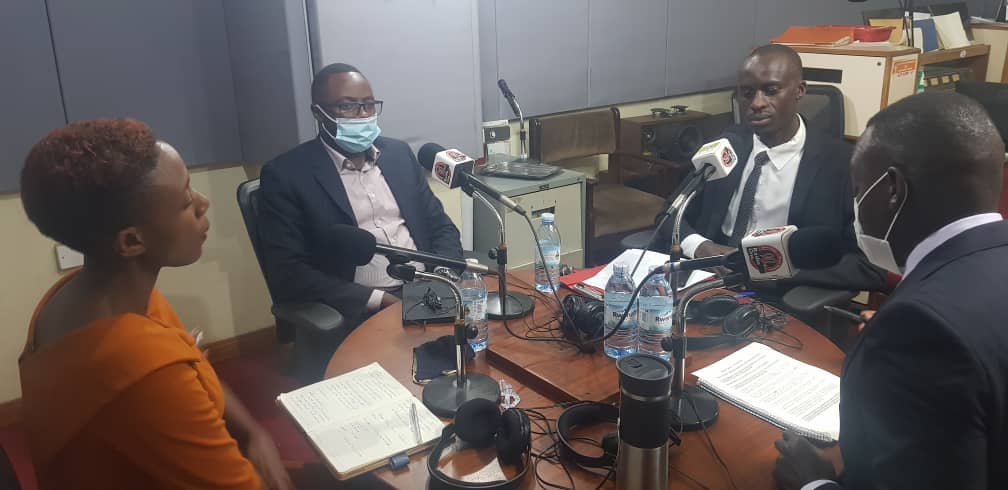 Rehema Namukose’s project, Youth Voices Against COVID-19, aims to document and amplify young artists’ and activists’ experiences about the impact of the pandemic on their lives. Rehema is the founder of Re!gnite Africa, a young adults-focused organization she founded in 2016. She’s so far developed six artist case studies which they have published on their website. “The voices of young artists, activists, and leaders have been amplified and we’ve noticed that a few of them featured on radio talk shows continue to speak out on the impact of Covid-19 on youth livelihoods and wellbeing, among other topical issues,” she says.
Rehema Namukose’s project, Youth Voices Against COVID-19, aims to document and amplify young artists’ and activists’ experiences about the impact of the pandemic on their lives. Rehema is the founder of Re!gnite Africa, a young adults-focused organization she founded in 2016. She’s so far developed six artist case studies which they have published on their website. “The voices of young artists, activists, and leaders have been amplified and we’ve noticed that a few of them featured on radio talk shows continue to speak out on the impact of Covid-19 on youth livelihoods and wellbeing, among other topical issues,” she says.
Innocent Turyahikayo is a social activist and co-founder of Inspire Africa Masindi – a youth-led community based organisation that works on increasing access to information among young people, particularly around human rights and social justice. His incubator project is the development and launch of an online community radio station that amplifies community voices and concerns, especially from ‘unheard’ voices in communities.
Regional Organizer for East Africa for the 100 Million campaign, Winnie Nyandiga, is meanwhile working on Justice for Every Child Kenya, a youth-led campaign to demand that the government makes clear its commitments for marginalized and vulnerable young people across the country during the pandemic – and also delivers on these commitments. She shares that the pandemic has inspired her to turn the project into a digital campaign infused with art elements to ensure the content is more resonant for young people. Winnie has seen promising initial outcomes with the young people she works with, who are showing more unity and civic awareness in their efforts. “They’ve been able to build and maintain bridges of dialogues with their duty-bearers, some of whom have also responded with commitments to the demands presented,” she says.
Remember to register here to join us for our pitch session on January 19 to meet and learn from these incredible accountability advocates.
